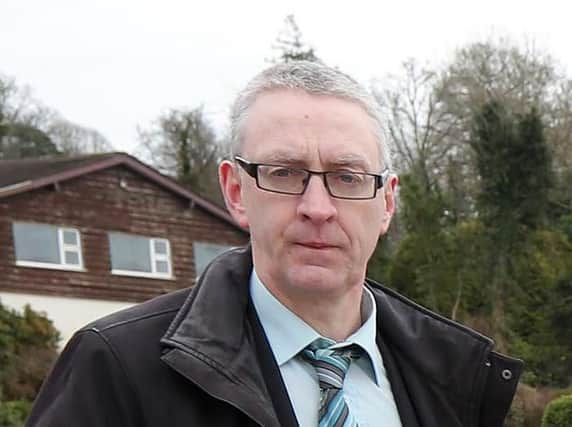Funding public transport, maintaining rail and road infrastructure will be problematic, DfI official warns committee


David McKinley, a member of DfI's senior management team in the Western Division, gave a blunt assessment of the budget restrictions facing the department during a briefing of the DC&SDC Environment and Regeneration Committee this afternoon.
Mr. McKinley, who is principally concerned with the local roads network and provided councillors with an update on maintenance and capital projects in the Derry and Strabane area in his Spring 2019 report, alluded to the difficulties DfI had as a department in delivering on its wide range of statutory duties across road, rail, sewerage and water infrastructure.
Advertisement
Hide AdAdvertisement
Hide AdHe warned: “The Department continues to face significant Resource and Capital budget challenges. Since 2013, the Department has relied on in-year funding to deliver core services including public transport and winter gritting.
"This continues to be the case for 2019-20. Our allocation falls well short of meeting our needs. It should enable the maintenance of drinking water and sewerage networks, but the continued provision of public transport services, particularly maintenance of the railway infrastructure will be challenging.
"Similarly the maintenance of the road network will be problematic, given its continuing deterioration and increases in raw material costs. Maintaining current levels of routine road maintenance, which were dependent on in-year funding in 2018-19, will be unlikely."
The local roads expert said DfI's budget has plummeted again this year and that managers were being forced to choose carefully which works are given the go ahead.
Advertisement
Hide AdAdvertisement
Hide Ad“In Capital, the 2019-20 allocation to the Department represents a reduction from the previous year. Almost 70 per cent of this budget is taken up with committed or priority projects, leaving insufficient budget to meet the Department’s responsibilities as custodian of some £40 billion of public assets; the Water and Sewerage network and the Roads and Public Transport systems.
“With the remaining funds, we will have to strike a balance between maintaining existing infrastructure in water and sewerage, the road network and public transport and new development, particularly in pursuit of the draft Programme for Government outcomes. Independent advice suggests that an investment of some £400 million per year is needed to safeguard these assets, more than double what the Department has available," he said.
Mr. McKinley told the committee that funding for road improvements was far below what it should be.
“Recent independent reports highlight that funding for roads maintenance has been below the level required for some time. While we would like to have increased funding for structural maintenance this year, the best we have been able to do is to keep it at a similar level to last year and again include a ‘Roads Recovery Fund’ which gives flexibility to target those roads which have been adversely impacted by recent under funding.
Advertisement
Hide AdAdvertisement
Hide Ad“While this will enable the Department to plan to deliver a reasonable programme of resurfacing schemes in the Derry City and Strabane Council area, funding for other programmes, such as Local Transport and Safety Measures and Street Lighting column replacement, will not be at the same level.
"The allocation for routine maintenance which is also similar to last year, means that we can deliver two grass cuts, a single gully clean across the network and the intervention level for potholes on lightly trafficked roads remains at 50 millimetres,” he said.